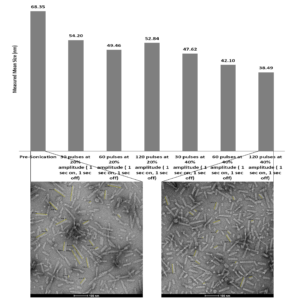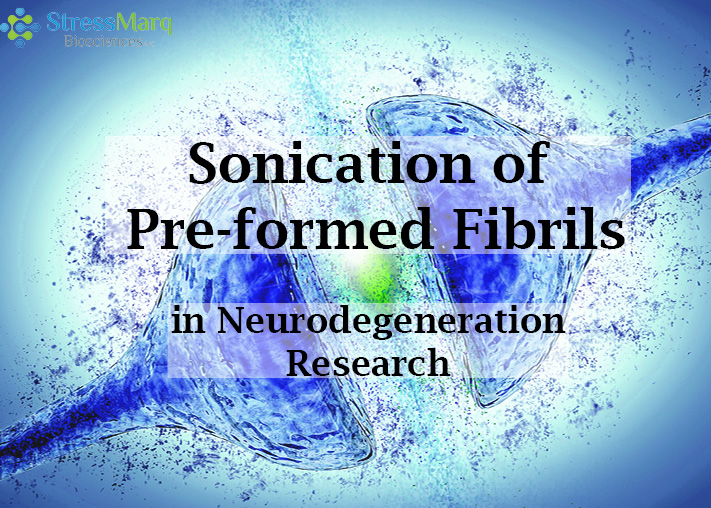Sonication of Pre-formed Fibrils in Neurodegeneration Research
As our population ages, neurological diseases such as Alzheimer’s and Parkinson’s are undoubtedly one of the greatest challenges faced by the scientific community. Neuroscientists have achieved remarkable progress and the increased research funding leads the way for future discoveries and treatments. Although there are still challenges and barriers in neurodegenerative research, scientists are now able to generate disease models in a short period of time by using recombinant fibrillary protein constructs, also called pre-formed fibrils (PFFs).
Previous studies have shown that the size of the fibrils plays a significant role in seeding pathology and sonication is a necessary process before their application. Sonicated fibrils are shorter in length and perform well in in vitro and in vivo experiments. But is fibril size alone responsible for their successful performance?

Increased sonication (both amplitude and number of pulses) decreases the size of A53T mutant alpha-synuclein PFFs (SPR-326). Unsonicated fibrils are longer, on average, than fibrils sonicated for 120 pulses at 40% amplitude.
Learn more about how sonication affects alpha synuclein pre-formed fibrils used in neurodegeneration studies in the free e-book entitled “Technology Advances Enabling Neurodegenerative Disease Research.”
For a detailed protocol on how to properly sonicate alpha synuclein pre-formed fibrils, please check out our webpage here.
StressMarq Biosciences has developed an extensive range of fibrillar, oligomeric and monomeric protein preparations for use in neurodegenerative disease research including alpha synuclein, beta synuclein, gamma synuclein, tau, amyloid beta, SOD1 and TTR. Our goal is to be the world leader in the development and supply of active, pathology-inducing protein aggregates to assist scientists with disease model development and accelerate neurodegenerative disease drug discovery.


Leave a Reply